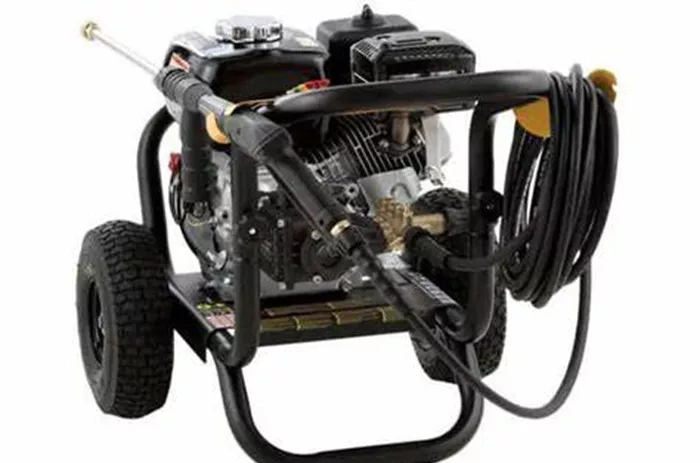DeWalt pressure washers are powerful tools designed for cleaning tough surfaces. They are widely used in construction, automotive, and residential cleaning. These machines rely on gasoline engines to generate high-pressure water streams. Choosing the right type of gas is crucial for performance and longevity.
Unlike electrical transformers, which use insulating oil or gas for cooling and insulation, pressure washers depend on gasoline for combustion. However, understanding fuel requirements is just as important as knowing transformer insulating mediums.
Importance of Using the Correct Gasoline
Using the wrong gasoline can damage the engine and reduce efficiency. Poor-quality fuel may cause carbon buildup, clogged fuel lines, and engine knocking. For DeWalt pressure washers, the manufacturer provides specific guidelines to ensure optimal operation.
Gasoline engines in pressure washers are similar to small automotive engines. They require clean, stable fuel with the right octane rating. Ethanol-blended fuels can be harmful if not properly managed.
Recommended Gasoline Type for DeWalt Pressure Washers
DeWalt recommends using unleaded gasoline with an octane rating of 87 or higher. This ensures smooth combustion and prevents engine knocking. Higher-octane fuel (89-93) may be used but is not mandatory unless specified in the manual.
Ethanol Content: Gasoline with up to 10% ethanol (E10) is acceptable. However, ethanol absorbs moisture, which can lead to corrosion in the fuel system. For long-term storage, ethanol-free gasoline is preferred.
Fuel Additives: Using a fuel stabilizer is advisable, especially if the pressure washer will be stored for extended periods. Stabilizers prevent fuel degradation and varnish buildup in the carburetor.
Avoid Diesel or Mixed Fuels: Never use diesel or mixed fuels (gasoline mixed with oil) in a DeWalt pressure washer unless explicitly designed for it. These can cause severe engine damage.
Comparing Gasoline Requirements in Pressure Washers and Transformers
While pressure washers rely on gasoline for combustion, transformers use insulating gases or oils for cooling and electrical insulation. Sulfur hexafluoride (SF6) is a common insulating gas in high-voltage transformers due to its dielectric strength.
Gasoline in Engines vs. Insulating Gas in Transformers: Gasoline is a combustible fuel, whereas SF6 is non-flammable and used for arc suppression. Both must meet purity standards to function correctly.
Maintenance Differences: Gasoline engines require regular fuel system cleaning, while transformers need gas purity checks and leak detection. Contaminated SF6 can lead to electrical failures, just as bad gasoline can damage an engine.
Effects of Using Low-Quality Gasoline
Using substandard gasoline can lead to several problems in a DeWalt pressure washer.
Engine Performance Issues
Poor-quality fuel may cause inconsistent power output. The engine might stall or struggle to maintain pressure. Detonation (uncontrolled combustion) can occur if the octane rating is too low.
Fuel System Damage
Ethanol-blended fuels attract moisture, leading to rust in the fuel tank and carburetor. Over time, this can clog jets and corrode metal components.
Increased Maintenance Costs
Frequent repairs may be needed if low-quality gasoline is used. Cleaning the carburetor, replacing fuel filters, and fixing engine damage can become costly.
Best Practices for Fuel Storage and Handling
Proper fuel management extends the life of a DeWalt pressure washer.
Using Fresh Gasoline
Always use fresh gasoline that is less than 30 days old. Stale fuel loses volatility and can cause starting difficulties.
Storing the Pressure Washer Correctly
If the pressure washer will not be used for a while, drain the fuel tank or add a stabilizer. Running the engine until it stops ensures no fuel remains in the carburetor.
Avoiding Contaminants
Dirt and water in gasoline can clog the fuel system. Always store gasoline in a clean, sealed container.
Alternative Fuel Options
While gasoline is the standard fuel, some users explore alternatives.
Propane-Powered Pressure Washers
Some DeWalt models may offer propane compatibility. Propane burns cleaner and has a longer shelf life than gasoline. However, it requires a different engine setup.
Electric Pressure Washers
For those who prefer not to use gasoline, electric pressure washers are an option. They are quieter and require less maintenance but may lack the power of gas models.
Conclusion
Choosing the right gasoline for a DeWalt pressure washer is essential for performance and durability. Always follow the manufacturer’s recommendations regarding octane rating and ethanol content. Proper fuel storage and handling prevent common engine problems.
Understanding fuel requirements is similar to knowing the insulating medium in a transformer. Both systems rely on specific substances to function efficiently. By using high-quality gasoline and maintaining the fuel system, users can ensure their DeWalt pressure washer operates at peak performance for years.
Related Topics:

